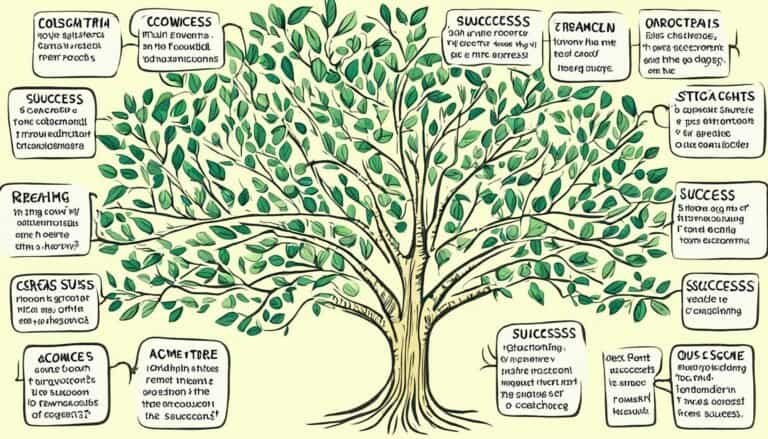Achieve Business Excellence: Unveiling Small Business Coaching Services
Small Business Coaching Fundamentals
Understanding the fundamentals of small business coaching is essential for entrepreneurs seeking to elevate their business performance. This section highlights the benefits of small business coaching services and the different types of coaching programs available.
Benefits of Small Business Coaching
Small business coaching services offer numerous advantages to entrepreneurs and business owners. These benefits are designed to enhance business growth, improve decision-making, and increase competitiveness in the market.
- Tailored Business Strategy: Coaches develop customized strategies that align with the specific needs and objectives of the business, leading to increased market competitiveness.
- Enhanced Decision-Making Skills: Business coaches provide tools and knowledge to evaluate market trends, offer financial literacy, and manage risks effectively, enabling entrepreneurs to adapt quickly to market changes.
- Mentorship and Support: Coaches offer mentorship, helping business owners devise systems and strategies for measurable success (Coachfirm).
- Business Growth: Coaching services can pay for themselves by providing opportunities for business growth and success, benefiting both large corporations and smaller businesses.
Types of Small Business Coaching Programs
There are various types of small business coaching programs tailored to meet the unique needs of different businesses. The choice of coaching program depends on the specific goals and requirements of the business owner.
- One-on-One Coaching: This type of coaching involves personalized sessions between the coach and the business owner. It allows for a focused approach to address specific challenges and develop tailored strategies. One-on-one coaching is ideal for entrepreneurs seeking individualized attention and customized solutions.
- Group Coaching: Group coaching involves multiple business owners participating in coaching sessions together. This type of coaching offers the benefit of shared experiences and collective learning. Group coaching is suitable for business owners looking to network and gain insights from peers while still receiving professional guidance.
| Coaching Program Type | Description | Ideal For |
|---|---|---|
| One-on-One Coaching | Personalized sessions focusing on specific challenges and strategies | Entrepreneurs seeking individualized attention |
| Group Coaching | Multiple business owners participate together, sharing experiences and learning collectively | Business owners looking to network and learn from peers |
By understanding the benefits and types of small business coaching services, entrepreneurs can make informed decisions on how to best leverage coaching to achieve their business goals.
Structuring a Coaching Program
Creating a structured coaching program is essential for delivering effective small business coaching services. A coaching program not only reflects the coach’s teaching style and materials but also provides a systematic approach to help clients achieve their goals. Here’s how to structure a coaching program for maximum impact.
Creating a Coaching Program
A coaching program is an organized offer that allows coaches to deliver their expertise in a structured manner. This program should bring clarity, organization, and a process to the coaching practice. The key elements of a successful coaching program include:
- Defined Goals: Clear objectives that the program aims to achieve.
- Target Audience: Specific clients or businesses the program is designed for.
- Teaching Materials: Tools, worksheets, and resources that support the coaching process.
- Program Structure: A detailed outline of the sessions, including frequency and duration.
Steps to Structure a Coaching Program
To create a powerful coaching program, follow these steps:
Step 1: Identify the Coaching Niche
Coaches need to know the problem they are solving, who they are helping, and which clients they are targeting (Source). Identifying a niche helps in tailoring the program to meet specific needs.
| Step | Description |
|---|---|
| 1 | Identify the coaching niche |
| 2 | Name the program |
| 3 | Choose program frequency and duration |
Step 2: Name the Program
The name should convey what the program covers quickly and concisely. It should also resonate with how clients define themselves and the solutions the program offers.
Step 3: Choose Program Frequency and Duration
Decide how often and for how long the coaching sessions will be held. This should be based on client preferences and convenience.
Importance of Certification in Business Coaching
Certification is a crucial aspect of establishing credibility and gaining a competitive edge in the field of business coaching. It equips coaches with the necessary knowledge and skills to deliver top-notch coaching services.
| Certification Program | Duration | Cost | Details |
|---|---|---|---|
| ICF Certification | Varies | High | Gold standard for coaching accreditation |
| CELDC Program | 30 hours | Moderate | Affordable option, can be combined for full ICF credentials |
| John Mattone’s Program | 3 days | Moderate | Intensive program, offers tuition discounts for advanced certifications |
Certification Benefits:
- Credibility: Certification from recognized bodies like the International Coaching Federation (ICF) enhances credibility.
- Knowledge: Specialized training ensures coaches are well-equipped to handle diverse business challenges.
- Competitive Edge: Certified coaches are preferred by corporate organizations and are more likely to be invited to speak at industry conferences.
Business Coaching for Success
Exploring the role of small business coaching services reveals their profound impact on business success. This section delves into the tangible benefits and real-life success stories that underscore the value of business coaching.
Impact of Business Coaching
Business coaching significantly influences the growth and success of small businesses. It provides business owners with the tools, strategies, and support needed to navigate challenges, make informed decisions, and achieve their goals. The following table highlights the key impacts of business coaching based on recent studies and client experiences:
| Impact Area | Description |
|---|---|
| Strategic Planning | Coaches help clients develop clear and actionable business plans. |
| Improved Leadership | Business owners enhance their leadership skills through targeted coaching. |
| Increased Revenue | Businesses see a notable increase in revenue through better strategies and execution. |
| Enhanced Productivity | Efficiency and productivity are improved with effective time management and prioritization. |
| Professional Growth | Clients experience significant personal and professional growth, leading to career advancements. |
By addressing these areas, business coaching services empower entrepreneurs to optimize their operations and drive sustainable growth.
Business Coaching Success Stories
Real-life success stories demonstrate the transformative power of business coaching. These narratives highlight how small business owners and entrepreneurs have overcome challenges and achieved remarkable results with the help of professional coaches.
- Navigating Pandemic Challenges:
A CEO successfully steered a company of 11,000 employees through the COVID-19 pandemic from 2020 to 2022 with the guidance of a business coach. The coach and CEO collaboratively developed new norms and emphasized patience and compassion during this difficult period (Forbes). - Tripling Business Revenue:
A small business owner nearly tripled her business in one year by leveraging social media and increasing referrals under the mentorship of a business coach. This success story underscores the potential of strategic marketing and networking. - Securing a Director Position:
With the support of a coach, a client achieved a director position within six months, despite initial doubts about the feasibility of such rapid advancement. The coach’s emphasis on personal responsibility and growth played a critical role in this achievement. - Launching a Business Post-Incarceration:
A coach helped a client launch a business immediately after serving a prison sentence. This experience highlighted the importance of focusing on controllable factors and future planning, regardless of past circumstances. - LinkedIn Success Stories:
Since January 2021, over 75 individuals from LinkedIn have worked with the author of a coaching program, with many experiencing exceptional results and some starting their own businesses (LinkedIn).
These success stories illustrate the diverse ways in which business coaching services can drive success and growth.
Pricing and Cost of Business Coaching
Understanding the pricing and cost structure of small business coaching services is essential for online business owners and entrepreneurs. This section delves into the factors influencing coaching costs and the affordability of these services.
Factors Influencing Coaching Cost
The cost of small business coaching can vary widely based on several factors. Here are some key elements that influence the pricing:
- Coaching Experience and Expertise: More experienced coaches with a proven track record typically charge higher fees. Their expertise and knowledge can provide significant value to the client.
- Type of Coaching Program: The cost may differ based on whether the coaching is individual, executive, or team-oriented. For example, executive coaching might be priced higher than individual coaching due to its focus on leadership development.
- Duration and Frequency of Sessions: The length and frequency of coaching sessions can impact the overall cost. More frequent and longer sessions usually lead to higher fees.
- Location and Delivery Method: In-person coaching might be more expensive due to travel and time considerations, while virtual coaching could be more cost-effective.
- Specific Needs and Goals: Customized coaching programs tailored to specific business needs might incur higher costs due to the specialized attention required.
| Factor | Impact on Cost |
|---|---|
| Coaching Experience | Higher expertise leads to higher costs |
| Type of Program | Executive and team coaching tend to be pricier |
| Session Duration | Longer and more frequent sessions increase costs |
| Delivery Method | In-person coaching can be more expensive |
| Customization | Tailored programs may have higher fees |
Affordability of Small Business Coaching
Contrary to common misconceptions, small business coaching is often affordable and provides tremendous value. Effective coaching services can be accessed for less than $1,000 per month, making them a viable option for small businesses looking to invest in leadership and team development.
- Value Over Cost: Small business coaching offers constructive criticism, helps teams work efficiently, aligns business goals, provides clarity around business needs, and offers networking opportunities across various industries. This value often outweighs the initial cost.
- Comparative Costs: Business coaching is generally priced lower than consulting services, which can charge tens of thousands of dollars. This makes coaching a cost-effective alternative for small businesses.
- Flexible Payment Options: Many coaches offer flexible payment plans, allowing small business owners to manage their budgets effectively while still benefiting from professional coaching services.
| Service Type | Monthly Cost |
|---|---|
| Individual Coaching | $500 – $1,000 |
| Executive Coaching | $700 – $1,500 |
| Team Coaching | $800 – $2,000 |
By understanding the factors influencing costs and the affordability of small business coaching, entrepreneurs can make informed decisions about investing in these services. For more insights on the benefits of small business coaching, visit our article on small business coaching benefits. Additionally, explore our small business coaching tips to maximize the value of your coaching sessions.
Maximizing Coaching Sessions
Effective coaching sessions are essential for achieving the desired outcomes in small business coaching services. This section will cover how to plan effective coaching sessions and ensure client accountability.
Planning Effective Coaching Sessions
To maximize the effectiveness of coaching sessions, it’s crucial to have a structured plan that focuses on the core objectives. Here are some key elements to consider:
- Establish Trust and Competency:
- Begin by connecting with the client to establish trust. A free introductory session can help break the ice (Simply.Coach).
- Identify Specific Objectives:
- Clearly define the goals at the beginning of the session. For instance, focus on improving profit margins in the next financial quarter.
- Structured Plan:
- Have a detailed agenda to ensure the discussion remains focused and productive. This helps in addressing the main issues without deviating from the core objective.
- Encourage Reflection:
- Ask clients to reflect on key insights and findings from the session. This reflection aids in retaining knowledge and achieving transformative results.
Ensuring Client Accountability
Accountability is a critical component of successful coaching. Here are some strategies to ensure clients remain accountable:
- Assigning Action Steps:
- Request clients to jot down takeaways and action steps from the session. This encourages them to take ownership of their progress .
- Regular Follow-ups:
- Schedule follow-up sessions to review the progress of the assigned tasks. This helps in keeping the client on track and addressing any challenges they might face.
- Setting Deadlines:
- Establish clear deadlines for each action step. This promotes a sense of urgency and ensures that tasks are completed in a timely manner.
- Using Accountability Tools:
- Utilize tools like progress trackers or accountability apps to monitor the client’s progress. These tools can provide reminders and help in maintaining consistency.
| Aspect | Strategy | Benefit |
|---|---|---|
| Establish Trust | Free Introductory Session | Breaks the ice, builds trust |
| Identify Objectives | Define Goals | Focused discussion, clear outcomes |
| Structured Plan | Detailed Agenda | Productive session, no deviation |
| Encourage Reflection | Ask Pertinent Questions | Retain knowledge, transformative results |
| Assign Action Steps | Jot Down Takeaways | Ownership of progress |
| Regular Follow-ups | Review Progress | Keep client on track |
| Set Deadlines | Clear Deadlines | Timely completion of tasks |
| Use Tools | Accountability Apps | Consistent progress monitoring |
By planning effective coaching sessions and ensuring client accountability, small business owners and entrepreneurs can make the most out of their small business coaching services.
Business Coaching and Business Growth
Small business coaching services play a pivotal role in driving business growth and success for entrepreneurs and online business owners. With tailored strategies and expert guidance, business coaching can significantly impact the trajectory of a small enterprise.
Accelerating Business Growth
Business coaching services provide entrepreneurs with the necessary tools, knowledge, and strategies to accelerate growth. Coaches help in developing a customized business strategy that fits the unique needs and objectives of the business, leading to increased market competitiveness (EBS).
One of the key aspects of accelerating growth is improving decision-making skills. Coaches offer insights into evaluating market trends, financial literacy, and risk management, enabling small businesses to adapt quickly to market changes and seize opportunities.
| Factors | Impact on Business Growth |
|---|---|
| Tailored Business Strategy | Increases market competitiveness |
| Decision-Making Skills | Enhances adaptability and opportunity seizing |
| Accountability Systems | Ensures consistent effort towards goals |
Additionally, business coaches implement systems of accountability through regular check-ins and progress evaluations. This structure ensures that small business owners remain focused on their goals, even during challenging times, leading to consistent progress towards business objectives.
Benefits of Business Coaching for Small Businesses
Business coaching services offer several benefits that contribute to the overall success and growth of small businesses:
- Enhanced Decision-Making Skills: Entrepreneurs gain tools and knowledge to evaluate market trends, understand financials, and manage risks effectively.
- Accountability and Focus: Regular check-ins and progress evaluations help business owners stay focused on their goals.
- Extensive Networks: Coaches bring a network of industry contacts, potential partners, and resources that open up new business development opportunities.
- Leadership Development: Business coaching refines leadership skills such as communication, empathy, and strategic thinking, which improve team performance and overall business success.
For more insights on the benefits of small business coaching, visit our article on small business coaching benefits.
By leveraging the expertise and guidance provided by business coaches, small businesses can navigate challenges more effectively and achieve sustainable growth. Entrepreneurs looking to enhance their business performance should consider investing in small business coaching programs to unlock their full potential.








